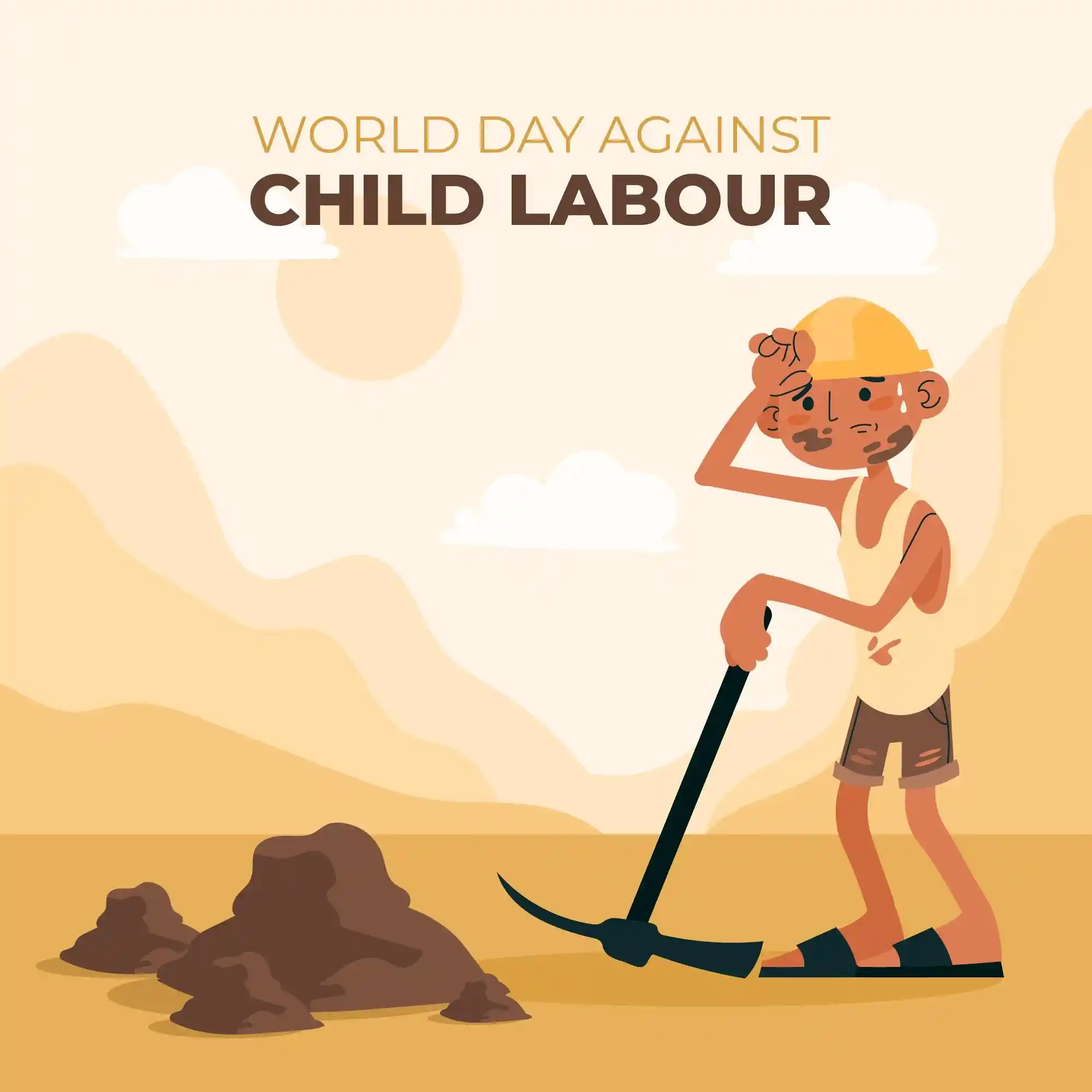Stand Against Child Labour
Every child has a right to a childhood. Although work is a part of life, forced labour or any form of work that hinders one's development physically or mentally is unacceptable. Child labour is one of the many crises looming in our world that needs to be dealt with urgently. The celebration of 'World Against Child Labour Day' reminds us of the horrors young children go through and that we, as a society, need to stand against all forms of such exploitative systems.

World Day Against Child Labor; Image Source: Freepik
As we grow up, we realise that our childhood is the shortest and most carefree phase of our life. From not wanting to go to school and cribbing about homework to looking forward to seeing our school crush every day and getting our acts together, we all grew up. Childhood was undoubtedly the best time of our lives- at least for some of us.
However, quite a few children never get to experience the naivety of a warm and sheltered life. These children are too young to know their rights, let alone fight for what's right. With no one to defend their right to a happy and safe childhood, they spend their lives working.
The nimble fingers that should be tracing patterns in their art files are employed by factory owners telling them to work with firecrackers. The little feet that should go around running in the fields are stepped on in rush hours as they scramble to make deliveries. Those little faces that should be brimming with smiles and hopes for their future are often caked with dust and trickles of sweat.
We talk about some forms of manual labour being gruesome, even for adults. So can you imagine what that kind of work must do to a child? People would argue that children are resilient and adaptable. But does that mean they can be robbed of a childhood and better opportunities in life?
Young children are often pulled out of school and forced to work in hazardous conditions. An overwhelming number of these children are orphans or come from poor households. Some of them are victims of human trafficking and have no other option but to beg or render any services their owners might ask.
While not all forms of labour are exploitative, they become problematic when they negatively impact a child's mental and physical development. Prostitution, forced labour in hazardous factories, begging, armed conflicts, and not allowing a child to pursue education and their well being are all considered detrimental forms of labour that need to be abolished immediately.
When the ILO (International Labour Organisation) was founded in 1919, one of its primary objectives was to abolish child labour.
In 2002, the ILO inaugurated World against Child Labour Day on the 12th of June. Since then, the day is celebrated every year to raise awareness and bring together the governments, private sector, businesses, non-governmental organisations, and activists to fight against child labour and provide rehabilitation to rescued child labourers.
The day is significant because it draws attention to the plight of child labourers who are forced to work in hazardous conditions. It also brings together stakeholders from all countries who pledge to put an end to child labour. While the solution to tackling this issue is different for each country and sector, as long as efforts are made in the right direction, there's still hope for the young ones trapped in this vicious cycle.
One must remember that every child has a right to a childhood. And if they can't defend this right of theirs, we must do it for them.


